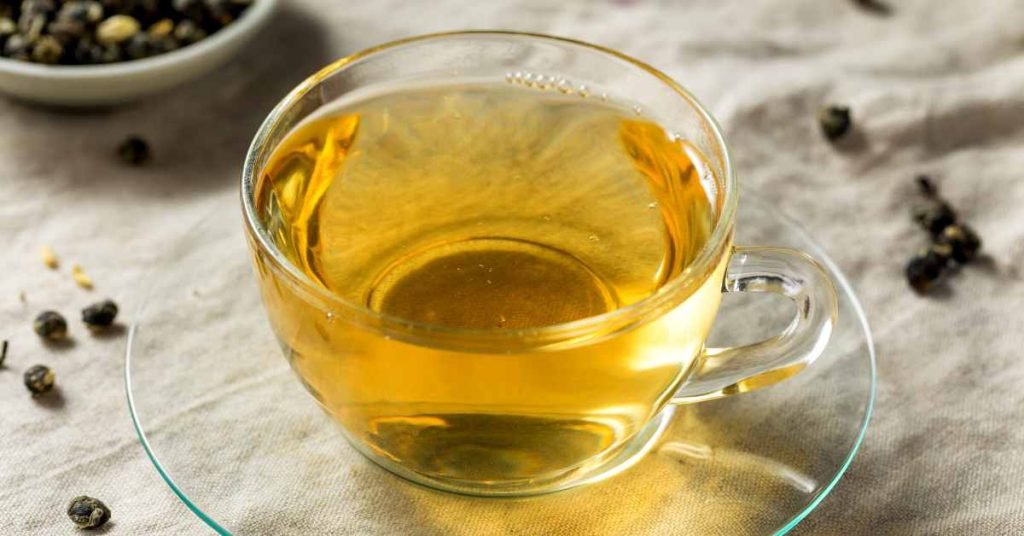Organic tea has become increasingly popular in recent years, as people have become more aware of the potential health and environmental benefits of choosing organic products.
It is a tea that has been produced without the use of synthetic fertilizers, pesticides, or other chemicals. Instead, it is grown using natural methods, such as composting and crop rotation, to maintain soil fertility and control pests.
Organic tea is usually certified by an independent organization to ensure that it meets certain standards for organic agriculture.
These standards vary by country and region but generally include requirements for soil health, biodiversity, and animal welfare, as well as restrictions on the use of synthetic chemicals.
Organic tea is often considered to be healthier and more environmentally friendly than conventionally grown tea, as it avoids the use of potentially harmful chemicals and supports sustainable agriculture practices.
Additionally, some people believe that organic tea has a better taste and aroma, as the natural growing methods may enhance the flavor of the tea leaves.
What Are the Benefits of Organic Tea?

Organic tea offers several benefits for both the environment and human health. Some of these benefits include:
- No harmful chemicals: As we already mentioned, organic tea is produced without the use of synthetic fertilizers, pesticides, or other harmful chemicals, which can have negative effects on both the environment and human health.
- Better for the environment: Organic tea farming practices promote biodiversity, maintain soil fertility, and reduce pollution, making it a more sustainable and eco-friendly choice.
- Higher antioxidant content: Organic tea often has higher levels of antioxidants, which are beneficial compounds that can help to protect against oxidative stress and may have anti-inflammatory effects.
- Better taste: Organic tea has a better taste thanks to the natural flavors and aromas that stay intact thanks to the eco-friendly production processes.
- Supports small farmers: Choosing organic tea supports small-scale farmers who use sustainable farming practices and helps to promote fair trade.
- Lowers risk of certain diseases: Studies have suggested that regular consumption of tea, including organic tea, may lower the risk of certain chronic diseases such as cardiovascular disease, diabetes, and some types of cancer.
Overall, choosing organic tea is a good choice for both the environment and your health.
Is Every Loose Tea Organic?

No, not all loose tea is organic. Whether tea is organic or not depends on how it is grown and processed. Organic tea is grown without the use of synthetic pesticides, herbicides, or fertilizers and is processed without the use of synthetic chemicals.
However, not all tea growers or manufacturers follow organic farming practices.
Some tea is grown using conventional methods, which may involve the use of synthetic chemicals and may not be certified as organic.
Therefore, it is essential to check the packaging or contact the manufacturer to determine whether a particular loose tea is organic or not.
However, our superb online tea store offers a wide variety of certified organic teas that you can add to your collection and improve your overall health and well-being naturally.
Final Word

Some studies have suggested that organic tea may contain higher levels of beneficial compounds such as antioxidants, which could provide health benefits such as improved immune function and reduced risk of chronic diseases.
Additionally, organic tea is often grown using sustainable farming practices, which can have positive environmental impacts.
Overall, drinking organic tea can be a healthy and environmentally-friendly choice.
However, it is essential to choose a high-quality organic tea that is free from contaminants and processed using safe and sustainable methods.
Medical Disclaimer
Itsnevernotteatime.com cannot and does not contain medical/health advice. The medical/health information is provided for general and educational purposes only and is not a substitute for professional advice.
Statements made on this website regarding the herbal and natural products offered on this website have not been evaluated by the food and drug administration as the FDA does not evaluate or test herbs. This information has not been evaluated by the US Food and Drug Administration, nor has it gone through the rigorous double-blind studies required before a particular product can be deemed truly beneficial or potentially dangerous and prescribed in the treatment of any condition or disease.
It is not meant to substitute for medical advice or diagnosis provided by your physician or other medical professionals. Do not use this information to diagnose, treat or cure any illness or health condition.
Accordingly, before taking any actions based upon such information, we encourage you to consult with the appropriate professionals. We do not provide any kind of medical/health advice. The use or reliance of any information contained on this site is solely at your own risk.
Please visit this FDA website to clear any confusions you have about food and dietary products and their ingredients:
Please visit this FDA website to clear any confusions you have about food and dietary products and their ingredients: https://www.fda.gov/Food/DietarySupplements/default.htm
MEDICAL DISCLAIMER
Itsnevernotteatime.com cannot and does not contain medical/health advice. The medical/health information is provided for general and educational purposes only and is not a substitute for professional advice.




